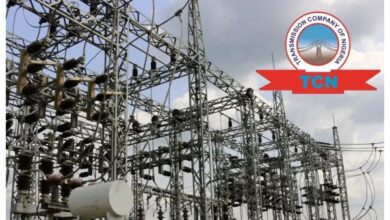Concern grows over situation at beleaguered Ukrainian nuclear plant
 As Russia again accused Ukraine of shelling the Zaporizhzhya nuclear power plant in the south of the beleaguered country, concern grew for the safety of the complex which has seen repeated shelling in recent days.
As Russia again accused Ukraine of shelling the Zaporizhzhya nuclear power plant in the south of the beleaguered country, concern grew for the safety of the complex which has seen repeated shelling in recent days.
An accident at the Ukrainian nuclear plant in Russian-occupied Zaporizhzhya would be far worse than the Chernobyl or Fukushima disasters, Yevheny Zymbalyuk, the Ukrainian ambassador to the International Atomic Energy Agency (IAEA) said in Vienna.
He warned of severe consequences not only for Ukraine, but all of Europe.
UN Secretary General Antonio Guterres also warned of the danger of the current situation. “Any attack on a nuclear plant is a “suicidal thing”, Guterres asserted.
“What will happen in a radius of 40 or 50 kilometres of the station, that is absolutely not comparable to Chernobyl or Fukushima,” Zymbalyuk added.
Analysts however say compared to the plants at Chernobyl and Fukushima, Zaporizhzhya is better protected thanks to a separate cooling circuit and a special protective layer, although it would probably be unable to withstand a targeted military attack.
Zymbalyuk again demanded monitors from the IAEA to be sent to Zaporizhzhya along with unarmed international military observers.
He said IAEA representatives should be on the ground by the end of the month.
The IAEA has long complained that it is waiting to access the plant and said that any deployment would require the support of both Moscow and Kiev.
Kremlin spokesman Dmitry Peskov urged the West to put pressure on Ukrainian President Volodymyr Zelensky as Moscow accuses Ukraine of shelling the nuclear plant.
“We expect that the countries that have absolute influence over the Ukrainian leadership will use this to prevent further shelling,” Peskov said, according to the Interfax agency.
Peskov spoke of a “highly dangerous activity” with, in the worst case, catastrophic consequences for all of Europe.
With his call for the West to influence the Ukrainian leadership, he once again made it clear that there is no longer a connection between Moscow and Kiev after peace negotiations were broken off in May.
New negotiations are not in sight.
In Washington, a White House spokeswoman Monday said the U.S. continues to “closely monitor the activity as the NPP the Department of Energy and the National Nuclear Security Administration report that the radiation sensors are continuing to provide data, and thankfully we have seen no indications of increased or abnormal radiation levels.”
“And we continue to call on Russia to cease all military operations at or near Ukrainian nuclear facilities and return full control to Ukraine,” spokeswoman Karine Jean-Pierre added.
The Pentagon announced further arms sales to Ukraine, with a billion-dollar package including additional ammunition for rocket launcher systems and 1,000 Javelin anti-tank missiles.
It also estimates that up to 80,000 people have been killed for or injured on the Russian side in the Ukraine war.
Meanwhile, the go-ahead has been given for a referendum on accession to Russia in the Russian-occupied Zaporizhzhya region.
The regional governor, Yevhen Balytskyi, said on Monday he was signing a decree ordering the Central Electoral Commission to start to prepare a referendum on the unification of the region with the Russian Federation, according to the Russian state agency Ria Novosti.
Balytskyi spoke at the “We are together with Russia” forum organised by the occupying forces in Melitopol. Zaporizhzhya, the regional capital, is still under Kiev’s control.
READ ALSO:https://brandeconomy.com.ng/chinas-economic-growthll-boost-opportunity-for-global-devt-official/
It is unclear how such a vote, which Ukraine would not recognise, will be organised.
Zelensky has already warned that referendums organised by the occupying forces would end all chances of peace talks with Russia.
Balytskyi did not give a specific date for the planned vote. In the past, the beginning of September was discussed as a possible period.
Meanwhile, a Russian soldier in the northern Ukrainian city of Chernihiv was sentenced to 10 years in prison on charges of war crimes.
The court considered it proven that the tank soldier fired on a multi-storey apartment building, carrying out an order shortly after the war began at the end of February, Ukrainian public television reported on Monday.
The soldier had pleaded guilty and is to be imprisoned for 10 years, but the sentence will only become final after a possible appeal.
(dpa/NAN)











